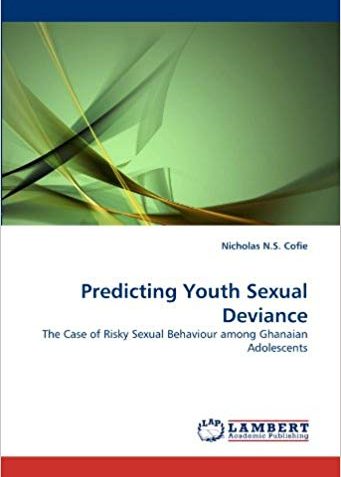
Although sub-Saharan Africa continues to bear the brunt of the global HIV/AIDS pandemic and other sexually transmitted diseases, very few studies in the region and for that matter Ghana have systematically and exclusively examined adolescent risky sexual behaviour in a manner that is theoretically consistent with the unique socio-cultural norms that govern sexuality in the society.
| STORE LOGO | DATE | PRICE | SHIPPING | LINK |
|---|---|---|---|---|
 |
November 18, 2018 | $65.00 | Free | Visit Store Website |
For over two decades now, much has been learned about the scourge of the HIV/AIDS pandemic and other sexually transmitted diseases (STDs), especially in the most advanced societies. But although sub-Saharan Africa continues to bear the brunt of the global HIV/AIDS pandemic and other sexually transmitted diseases, very few studies in the region and for that matter Ghana have systematically and exclusively examined adolescent risky sexual behaviour in a manner that is theoretically consistent with the unique socio-cultural norms that govern sexuality in the society. Given that involvement in risky sexual behaviour constitutes sexual deviance in the Ghanaian context, and from the ontological position that behaviour is a product of structure and human agency (Sewell 1992), this study employs the theories of social control (Hirschi 1969), power control (Hagan et al. 1979, 1985,1987, 2002; McCarthy et al. 1999) and rational choice (Cornish and Clarke 1986) in examining the predictors of risky sexual behaviour among Ghanaian adolescents. Overall findings suggest a mixed support for the theoretical expectations. Policy implications and direction for future research are also addressed.